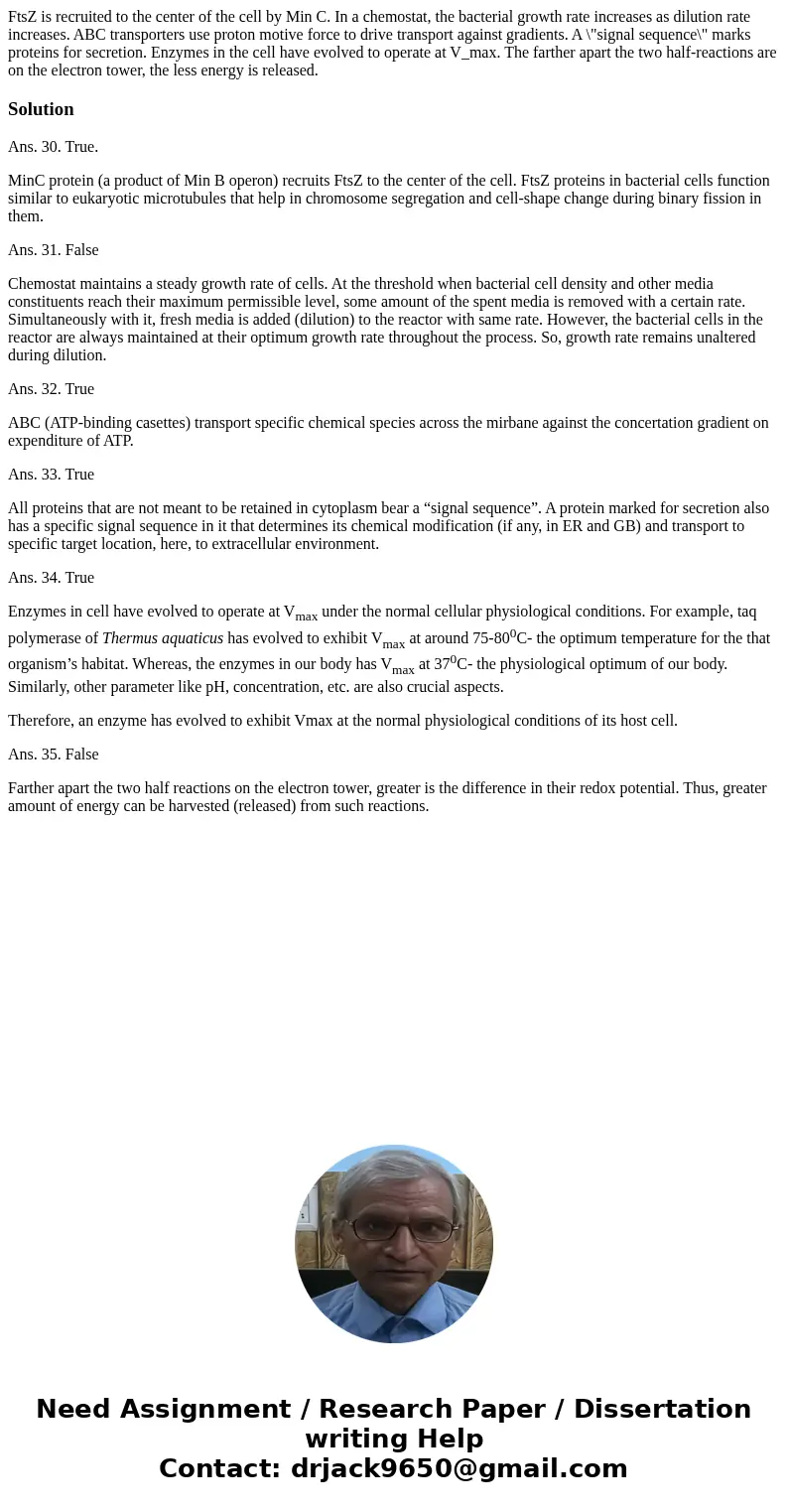FtsZ is recruited to the center of the cell by Min C In a ch
Solution
Ans. 30. True.
MinC protein (a product of Min B operon) recruits FtsZ to the center of the cell. FtsZ proteins in bacterial cells function similar to eukaryotic microtubules that help in chromosome segregation and cell-shape change during binary fission in them.
Ans. 31. False
Chemostat maintains a steady growth rate of cells. At the threshold when bacterial cell density and other media constituents reach their maximum permissible level, some amount of the spent media is removed with a certain rate. Simultaneously with it, fresh media is added (dilution) to the reactor with same rate. However, the bacterial cells in the reactor are always maintained at their optimum growth rate throughout the process. So, growth rate remains unaltered during dilution.
Ans. 32. True
ABC (ATP-binding casettes) transport specific chemical species across the mirbane against the concertation gradient on expenditure of ATP.
Ans. 33. True
All proteins that are not meant to be retained in cytoplasm bear a “signal sequence”. A protein marked for secretion also has a specific signal sequence in it that determines its chemical modification (if any, in ER and GB) and transport to specific target location, here, to extracellular environment.
Ans. 34. True
Enzymes in cell have evolved to operate at Vmax under the normal cellular physiological conditions. For example, taq polymerase of Thermus aquaticus has evolved to exhibit Vmax at around 75-800C- the optimum temperature for the that organism’s habitat. Whereas, the enzymes in our body has Vmax at 370C- the physiological optimum of our body. Similarly, other parameter like pH, concentration, etc. are also crucial aspects.
Therefore, an enzyme has evolved to exhibit Vmax at the normal physiological conditions of its host cell.
Ans. 35. False
Farther apart the two half reactions on the electron tower, greater is the difference in their redox potential. Thus, greater amount of energy can be harvested (released) from such reactions.

 Homework Sourse
Homework Sourse